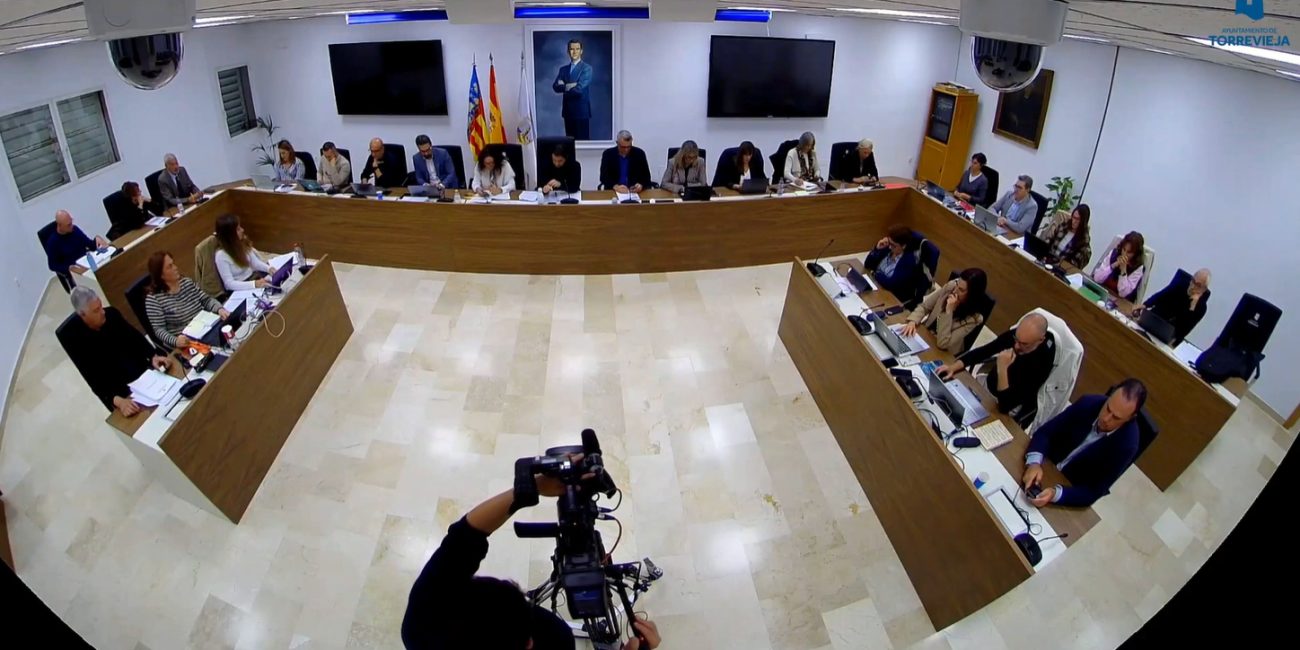Torrevieja City Council voted yesterday, Monday November 24th, to support a motion from the Popular Municipal Group asking the Spanish Government and the Ministry for Ecological Transition to quickly change Law 7/2022, which deals with waste and contaminated soils for a circular economy. The PP, VOX, and Sueña Torrevieja parties all voted in favour of the motion, while the Socialist Municipal Group voted against it. This rule says that towns must charge citizens the full cost of collecting and treating trash, regardless of what the municipality wants or how much money each region has.
A set of rules that don’t make sense and are unfair since they don’t match the way things really are in the municipality
The councillor pointed out that the FEMP has previously unanimously called for a change to the law since it is “confusing, unfair, and not in line with the independence of municipalities.”
Also, a lot of Spanish cities are raising their prices by 25% to 40% to follow the rules, while others are figuring them out based on factors that have nothing to do with the real generation of waste.
The Association of Local Tax Inspectors itself says that this required fee only covers an average of 65.5% of the real cost of the service. Paredes said that this happens because many cities don’t have the most recent studies and are connecting the cost to property tax or water use. This doesn’t show how much garbage each person makes, and it will lead to lawsuits, overturned laws, and even more waste in those cities.
Effect on families, businesses, and rents
The councillor also talked about how the state law would affect the economy and society:
“The FEMP has already said that this tax will be added to the rent price.” They will give the extra money to the tenant if the landlord pays more. This measure will have a big effect on young people, families with jobs, and retirees.
“It will also hurt small businesses, bars, restaurants, and shops, which will have to pay more bills without the State giving them money to meet their recycling goals.”
Paredes said that the law includes environmental incentives “that sound good on paper, but in practice are impossible to implement without multi-million euro investments in technology that no one is paying for.” It is another example of a rule made in Madrid without talking to the local authorities.
Torrevieja is an example of good management even though the Spanish government forced it.
The councillor said that Torrevieja has been defending its citizens for years and paying for a large part of the service directly:
“Our City Council has paid for about 60% of the total cost of waste collection, which is more than 20 million euros a year from 2024 to 2025. They did this without raising the rate, adjusting it to the CPI, or raising the property tax above the legal minimum.” This law is especially hard on cities and towns who have done their study, been careful, and handled their money well.
The Popular Municipal Group’s resolution, which was accepted today in a full meeting, suggests:
- To urge the Government of Spain and the Ministry for Ecological Transition to amend Law 7/2022 and eliminate the obligation to pass on 100% of the cost of the service to the residents.
- Reform the law to guarantee municipal autonomy, allow mixed financing models, establish real incentives for recycling and apply social bonuses for vulnerable groups.
- Create state and regional funding mechanisms that allow European objectives to be met without indiscriminately raising rates.
- To launch a National Infrastructure Plan for the Circular Economy, co-financed with European funds.
- Forward this agreement to the Government of Spain, the FEMP and the FVMP.
Domingo Paredes ended by saying, “Torrevieja will continue to defend a city model that does not punish its residents, keeps taxes low, and respects the independence of the city.” We just want common sense: that Madrid not put duties on local councils that threaten their economic stability and the health of families.









No Comment! Be the first one.